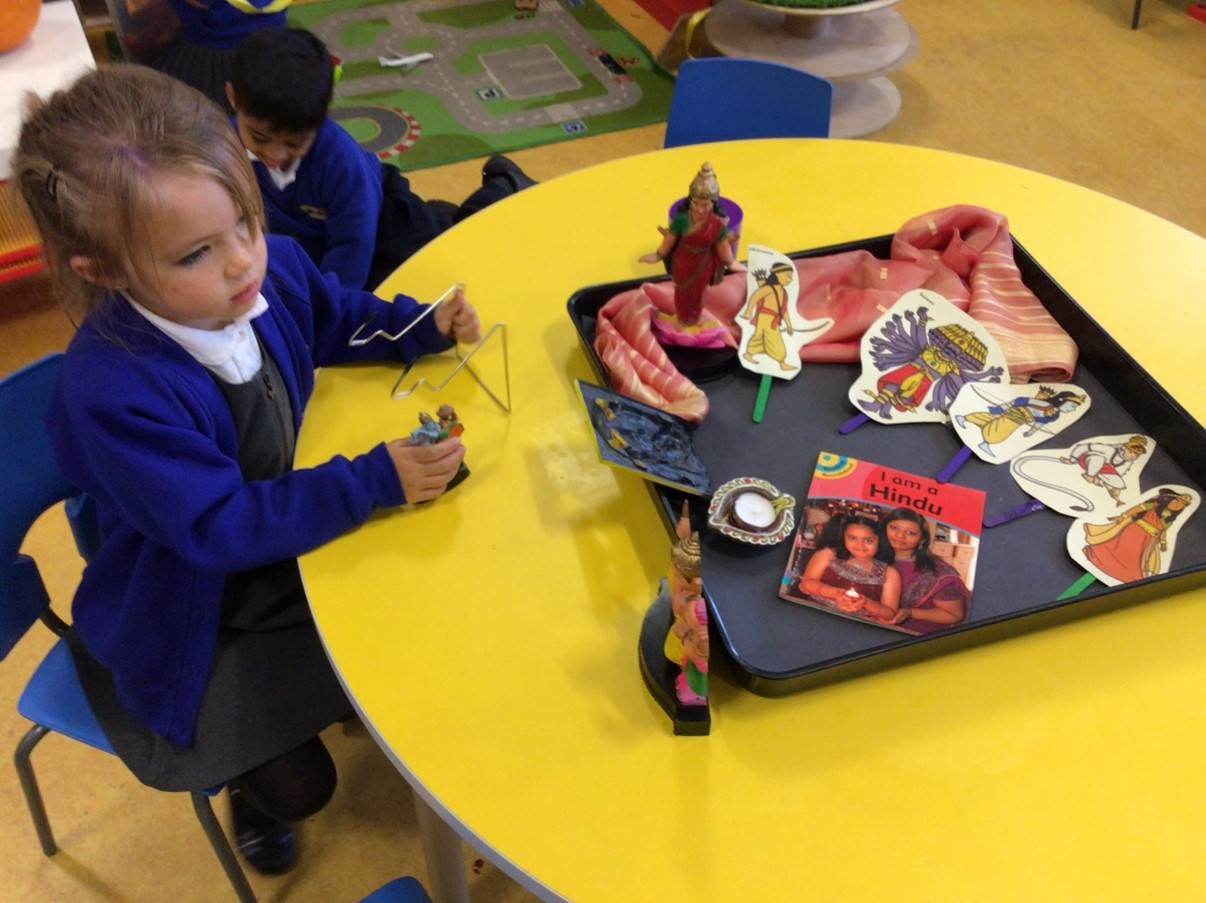Religious Education
Religious Education Curriculum Statement
At Worthington Religious Education provides a comprehensive and inclusive learning experience providing all pupils have opportunity to explore and reflect upon their own beliefs and values whilst developing their knowledge and understanding of religious and non-religious world views. We foster an environment of respect and appreciation for the diversity within both our school community and the wider world, promoting understanding, reflection, personal growth and the development of social and moral values.
Religious Education Curriculum- Intent
RE is taught following Trafford Agreed Syllabus for Religious Education. At Worthington our pupils will have the opportunity to:
- develop knowledge and understanding of Christianity and the other principal religions and non-religious worldviews
- develop an understanding of the influence of beliefs, values and traditions on individuals, communities, societies and cultures;
- develop the ability to make reasoned and informed judgements about issues arising from the study of religions;
- reflect on their own beliefs, values and experiences and articulate their ideas whilst respecting that the views of others may differ.
Religious Education Curriculum- Implementation
RE is taught using the key questions from the Trafford Agreed Syllabus for Religious Education.
- Each year group focusses on one key question as a block during each term.
- There is a key question taken from each of the strands of the Syllabus – Believing, Expressing and Living.
- As required by the Trafford Agreed Syllabus, all pupils will study Christianity in each key stage. In addition to this, pupils will study, as required by law, the principal religions represented in the UK which include Judaism, Islam, Hinduism, Buddhism, and Sikhism. Furthermore, to reflect representations within the school, other faiths and non-religious worldviews e.g. Humanism will be a focus.
- Planning ensures continuity and progression of knowledge, understanding, concepts and skills.
- Learning outcomes are specifically related to the key question content and focus on meeting the requirements for the End of Key Stage Learning Outcomes.
- Teachers plan for the Key question and take into consideration the needs of their class and opportunities to enhance learning experiences e.g. stories, festivals, workshops, visits, visitors.
- Work is evidenced in various ways through books, photographs, art work and other appropriate methods.
Religious Education- Impact
The impact of our curriculum in Religious Education enables pupils to:
- Have a knowledge and understanding of Christianity, other principal and non-religious worldviews
- To talk and discuss confidently about their learning in RE to adults and to each other.
- Explore questions raised about religion and beliefs, reflecting on their own ideas and the way of living of themselves and those around them.
- Use investigation and research skills to enable them to make reasoned and informed judgements about religious views.
- Have respect for the views, belief and practices of others in today’s society, recognising the diversity which exists between communities and amongst individuals.
Additional assessment opportunities:
- High quality teacher questioning
- Teacher observations of pupils’ verbal contributions in class
- Teacher observations of pupils’ verbal contributions in group work and collaborative learning
- Work scrutiny
- Pupil Voice
Feedback is given to the children as soon as possible, and marking work is guided by the school’s Feedback and Marking Policy.

